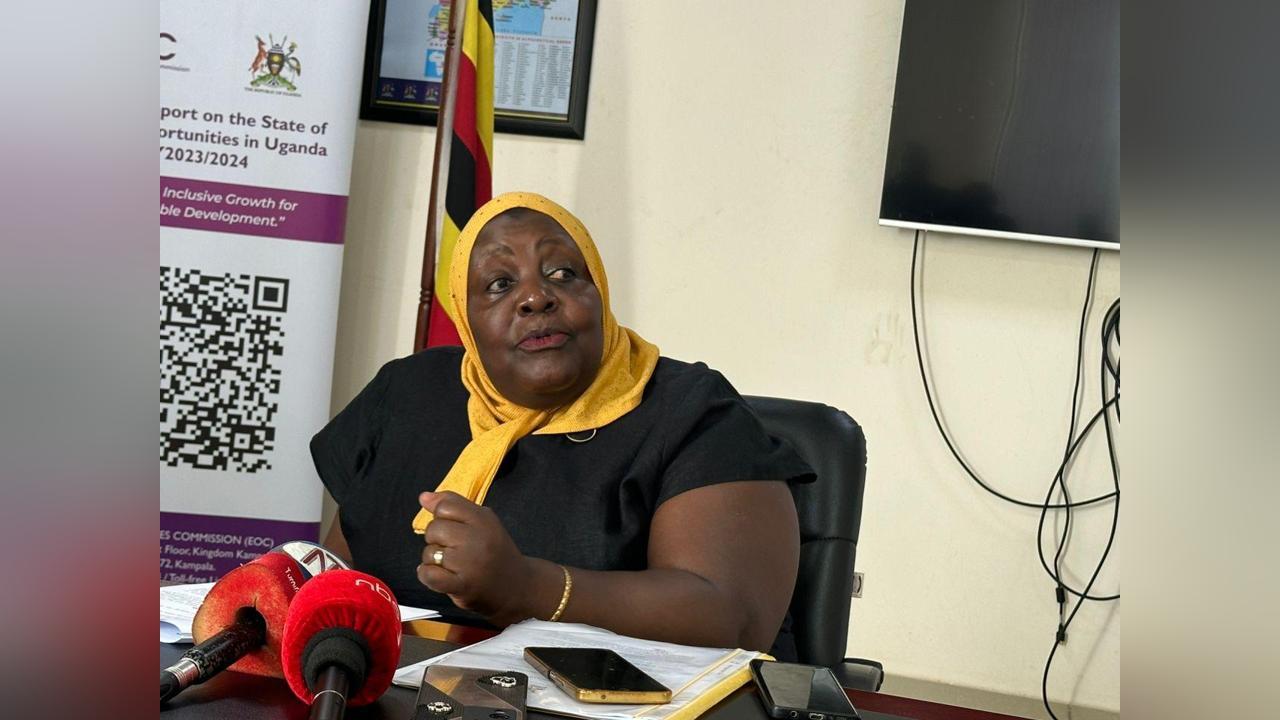Africa-Press – Uganda. The Equal Opportunities Commission (EOC) has sounded a sharp warning over systemic injustices in Uganda’s electoral structure, pointing to glaring inequalities in constituency representation, civic participation, and access to electoral processes for marginalised groups.
In a dialogue with Electoral Commission Chairperson Justice Simon Byabakama, EOC Chairperson Safia Nalule Jjuuko painted a picture of an electoral framework that, in her words, is “failing large segments of the population.”
“We cannot continue to pretend that our electoral system is fair when over a million people in some regions are represented by just one MP, while others enjoy overrepresentation,” Nalule charged.
Her remarks come amid growing scrutiny of how Uganda’s electoral map is drawn.
The EOC’s findings show that sub-regions such asTeso, Bukedi, and Busoga populare underrepresented in Parliament compared to less populated areas.
Nalule argued that such disparities contravene Articles 62 and 63 of the Constitution, which require parliamentary constituencies to be determined by population size and geographical features following a national census.
Beyond the structural flaws in representation, Nalule highlighted a persistent decline in voter turnout and participation among special interest groups.
Only 57.2% of registered voters cast their ballots in the 2021 general elections a trend she attributed to limited civic education and the exclusion of vulnerable populations.
“Low voter turnout is not just a statistic it’s a symptom of a broken system that fails to reach and empower all Ugandans, particularly persons with disabilities, youth, women, and the elderly,” she said.
She further criticised the suspension of logistical support for voters in special interest group elections, a move she believes has disenfranchised thousands.
“The Electoral Commission used to support transport and targeted outreach for these groups. That support has disappeared,” she noted.
Nalule also drew attention to irregularities in intra-party electoral processes, particularly for flag bearers representing persons with disabilities, where underfunded and poorly managed electoral colleges undermine transparency and fairness.
The EOC Chairperson called for a comprehensive overhaul of the electoral framework beyond just technical adjustments demanding legal, policy, and operational reforms that place equity at the heart of electoral governance.
“We must stop managing elections as one-size-fits-all. If we are to achieve inclusive democracy, the system must reflect the realities of all Ugandans, not just the privileged,” Nalule emphasised.
Justice Byabakama acknowledged the concerns raised and committed to reviewing the Commission’s recommendations.
For More News And Analysis About Uganda Follow Africa-Press






